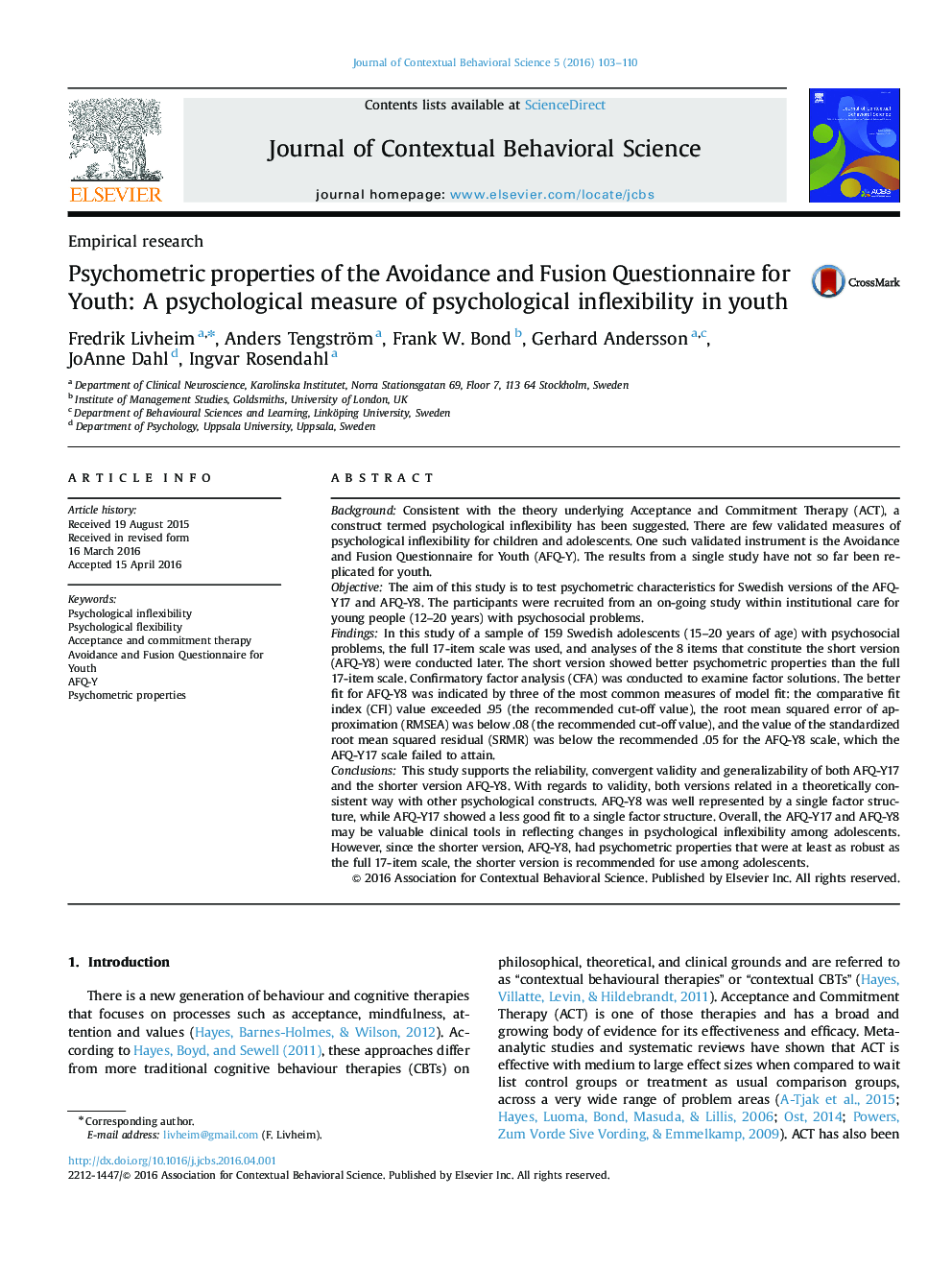| کد مقاله | کد نشریه | سال انتشار | مقاله انگلیسی | نسخه تمام متن |
|---|---|---|---|---|
| 911155 | 1473121 | 2016 | 8 صفحه PDF | دانلود رایگان |
• A study to further validate the Avoidance and Fusion Questionnaire for Youth.
• The measure is supported psychometrically.
• The shorter AFQ-Y8 worked as well. Hence we recommend the shorter version.
• The measure has research and clinical utility.
BackgroundConsistent with the theory underlying Acceptance and Commitment Therapy (ACT), a construct termed psychological inflexibility has been suggested. There are few validated measures of psychological inflexibility for children and adolescents. One such validated instrument is the Avoidance and Fusion Questionnaire for Youth (AFQ-Y). The results from a single study have not so far been replicated for youth.ObjectiveThe aim of this study is to test psychometric characteristics for Swedish versions of the AFQ-Y17 and AFQ-Y8. The participants were recruited from an on-going study within institutional care for young people (12–20 years) with psychosocial problems.FindingsIn this study of a sample of 159 Swedish adolescents (15–20 years of age) with psychosocial problems, the full 17-item scale was used, and analyses of the 8 items that constitute the short version (AFQ-Y8) were conducted later. The short version showed better psychometric properties than the full 17-item scale. Confirmatory factor analysis (CFA) was conducted to examine factor solutions. The better fit for AFQ-Y8 was indicated by three of the most common measures of model fit: the comparative fit index (CFI) value exceeded .95 (the recommended cut-off value), the root mean squared error of approximation (RMSEA) was below .08 (the recommended cut-off value), and the value of the standardized root mean squared residual (SRMR) was below the recommended .05 for the AFQ-Y8 scale, which the AFQ-Y17 scale failed to attain.ConclusionsThis study supports the reliability, convergent validity and generalizability of both AFQ-Y17 and the shorter version AFQ-Y8. With regards to validity, both versions related in a theoretically consistent way with other psychological constructs. AFQ-Y8 was well represented by a single factor structure, while AFQ-Y17 showed a less good fit to a single factor structure. Overall, the AFQ-Y17 and AFQ-Y8 may be valuable clinical tools in reflecting changes in psychological inflexibility among adolescents. However, since the shorter version, AFQ-Y8, had psychometric properties that were at least as robust as the full 17-item scale, the shorter version is recommended for use among adolescents.
Journal: Journal of Contextual Behavioral Science - Volume 5, Issue 2, April 2016, Pages 103–110
